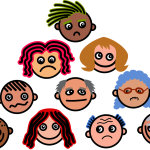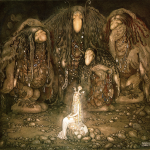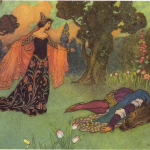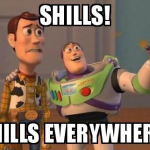Here's the premise: social justice and equitable care increasingly require that those individuals providing your healthcare look like you and share your lived experience. To that end, medical schools have fashioned (or refashioned) their mission statements to explicitly call for diversity in their student bodies. But as a new study shows, words and intentions are not sufficient.
bias
Television has popularized surgical attire; how else to tell the surgeons from the internists? Does the color of scrubs – traditionally green in most institutions – affect relationships with patients? A new study suggests the answer is ...
Usually, our strategy to handle unfair attacks is to ignore them. But occasionally, the assaults are so egregious that they deserve a full-throated rebuttal. This is one of those times.
Certain kinds of scientific literature reviews can bias experts into being more optimistic about the potential outcome of a clinical trial than the data actually warrant.
Here's what we have for you this time: Why Doctors Think They're the Best ... an introduction to the beautiful writing of Robert McFarlane ... a nod to Dr. Aaron Carroll and the fight to debunk bad healthcare claims ... and finally, considering two views of climate change: the "gradualist" and the "catastrophist."
There's a pervasive bias in academia against scientists who work in industry. It is often said that such individuals aren’t "real scientists." The less charitable describe them as having gone over to the so-called dark side. For at least two reasons, this is a shameful and hypocritical way to characterize industry.
Plenty of bad papers are accepted as true because the academic who wrote it is famous. On the flip side, many good papers are never written out of the fear that it could cost an academic his job. So, how about we just eliminate real names and publish papers under fake ones instead? That's the fundamental idea behind a new journal, not-so-subtly called The Journal of Controversial Ideas, set to launch next year. This idea is so good, I wish I'd thought of it first.
The prevalence of cigarette smoking among American adults is at an all-time low. Many media outlets decided to downplay or ignore this milestone public health achievement and instead scare people about vaping.
Just because something is documented in a medical chart doesn't make it more accurate. How it's conveyed, and in what context, greatly matters.
Many well-intended efforts that fixate on bias can achieve the unintended consequence of imposing it instead.
Over the past decade, Americans' trust in the news media has collapsed. However, it can be restored, if the media dedicates itself to accuracy and correcting its mistakes. As we are learning Americans care less about a media outlet's political slant than its dedication to the truth.
It seems that when we compare the frequency of events, we're influenced by its past prevalence. When fewer bad things occur we simply expand the definition of bad to make up the difference.











